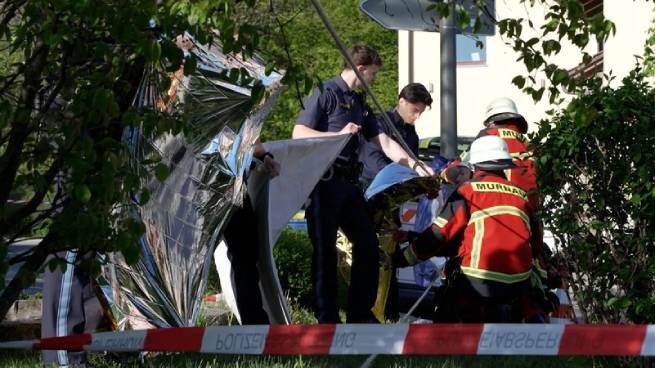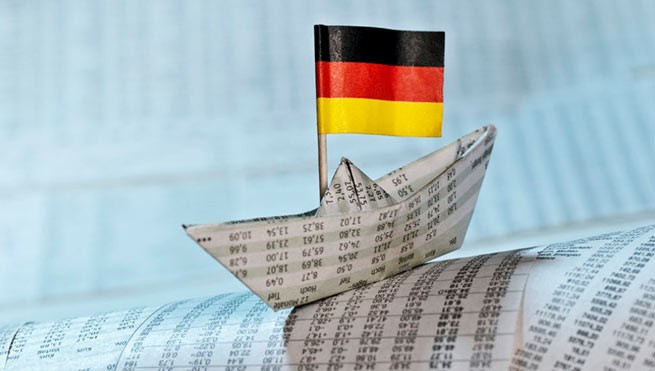If there are cycles in life, then the economy is characterized by ups and downs. Today, Germany is nothing like the economic leader of Europe in the 2000s.
Not only has her national team gone into decline, but the far-right Alternative for Germany (AFD) party has steadily risen in the polls to a staggering and fearful 20% for the Social Democrats.
Geopolitics, energy transition and population aging are Germany’s three main challenges. As if that weren’t enough, the country’s illustrious economic model, run under the “tactful leadership” of Olaf Scholz, does not appear to be capable of delivering the kind of growth that the Germans expect.
As stated in an article published in the journal EconomistGermany is a country that is in great disarray, prone to situations it could not have foreseen, such as a war in Europe and a slowdown in China.
economic downturn
According to the International Monetary Fund, Germany will be the only country in the group of 7 richest countries in the G7 whose economy will shrink this year.
But the most unpleasant thing for the German leadership is that Russia, on which the EU has imposed 11 packages of sanctions, surpassed Germany in terms of GDP.
And, as predicted, over the next 5 years it will continue to eat the dust of the US, UK, France and Spain. And that, according to the British magazine, is of greatest concern – the lack of light at the end of the tunnel, as Germany faces the industry’s vulnerability to foreign competition and geopolitical divisions at a time when its path to zero emissions is proving difficult and its workforce is aging with every year.
The nail in the country’s coffin is the inexperience and unpreparedness of the German state to deal with these problems.
There are many reforms & a lot of investment to be done but Germany proved 20 years ago that it can do it. Germany will need a competitive public sector that attracts talent to support this transformation.
Is Germany once again the sick man of Europe? https://t.co/OXvBJdQHB3
— Moritz Kuhn (@kuhnmo) August 17, 2023
There are many reforms and significant investments to be made, but Germany proved 20 years ago that it can do it. Germany needs a competitive public sector that attracts talent to support this transformation. Has Germany become the sick man of Europe again?
Germans protest
Olaf Scholz’s government is trying to cheer the public up by claiming that the situation is not as bad as it was in 1999, when unification, a tight labor market and falling demand for exports brought down the country’s economy, pushing the unemployment rate into double digits.
Today, Germany’s unemployment rate is 3% and the country is richer and more open, officials say. However, Germans are increasingly complaining that their economy is not working as it should, and four out of five say that Germany is no longer a fair place to live.
For many years, Germany’s cutting-edge achievements in old industries have counterbalanced the lack of investment in new ones. Complacency and an obsession with fiscal austerity have resulted in very little public investment. For example, investment in information technology, calculated as a percentage of Germany’s GDP, is about two times less than in the US and France.
Geopolitical challenge
Bureaucratic conservatism is also a serious obstacle. It takes 120 days to obtain a business license, twice the OECD average.
The deteriorating geopolitical situation, the difficulty of eliminating carbon emissions and the consequences of an aging population, as discussed above, further complicate the situation in Germany. In fact, from a geopolitical point of view, what is happening is that industrial production may no longer be the inexhaustible source of funds that it was in the past.
Of all the leading Western economies, it is Germany that is most exposed to the influence of China. Last year alone, the volume of trade between the two countries amounted to 314 billion dollars. If earlier these relations were determined by the profit motive, today everything is much more complicated. For example, German automakers are already losing the fight in this huge Asian market to domestic competitors.
Overcoming its problems—geopolitics, climate change and demography—will require a nimble, digitally savvy and highly capable state. Unfortunately, Germany’s state is none of these things https://t.co/I9ak5CNbCm
— The Economist (@TheEconomist) August 18, 2023
Overcoming challenges – geopolitics, climate change and demographics – will require the state to be nimble, digitally savvy and highly skilled. Unfortunately, Germany does not have any of these qualities.
Difficult energy transition
In the field of energy transition, Germany is in a difficult position, as its industrial sector consumes almost twice as much energy as the next largest consumer in Europe, and its carbon footprint is much larger than that of France or Italy.
Cheap Russian gas is no longer available to the Germans, besides, the country, urged on by the “greens”, has abandoned nuclear energy. The lack of investment in the relevant networks and the slow licensing system hinder the transition to cheap renewable energy, which threatens to reduce the competitiveness of producers.
In general, Germany is increasingly lacking the talent it needs for a new leap forward. As a result of the “baby boom” that emerged after the Second World War, about 2 million workers will retire in the next five years. And although the country has accepted about 1.1 million Ukrainian refugees, many of them are children and women, who most often do not work.
Already, two-fifths of employers complain that they are having difficulty finding skilled workers. And this is not an exaggeration, since Berlin is not able to fill even half of its teaching positions with suitable personnel.
Conversion bets
For Germany to thrive in a fragmented, greener, older world, its economic model must be adapted. The problem is that politicians at the forefront of power may choose to continue with a proven formula, fearing that the reforms imposed on them will not be popular with the population, which will put them out of the game after they become bread and butter for thriving far right.
Two decades ago, Germany experienced a tremendous transformation with enormous results. It’s time to pay any price to achieve it again, says another article on the same topic in the magazine. Economist.







More Stories
Today the world remembers the accident at the Chernobyl nuclear power plant
A trial has begun in the case of a fatal accident involving Dora Bakoyanni's car.
Poll: which European countries are ready to defend their homeland to the last